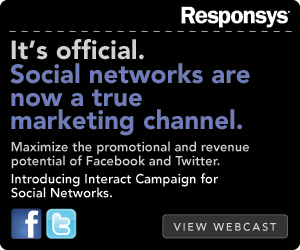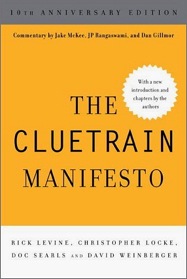Social media: a marketing dilemma for the micro-enterprise
27/05/2010 Leave a comment
Social media are now mainstream. They are a pervasive part of nearly everyone’s everyday life, providing, of course, you have access to a PC and smartphone.
For a micro-enterprise, the dilemma is this. The moment has passed when it is simply a question of using, or not using, social media. Nearly every solo entrepreneur is already on at least one social media site like Facebook or LinkedIn: they’d be crazy not to be.
The primary decision is purely a marketing issue: there is a substantial difference between involvement in social media and social media marketing.
Marketing is used to identify customers, to retain customers and to satisfy customers. It is also about being crystal clear about who these potential customers are and exactly how your product or service will satisfy them, beyond expectation. So, as a micro-enterprise, you should ask yourself the same question about using any tool in marketing: will my community of potential customers actually use social media? They might not.
If the answer is no, then use social media for other business functions like advice, sharing ideas, making useful contacts and administration. If yes, then get ready to face up to all the possibilities, good and bad, presented by regular and immediate online communication with prospects and customers.
Your marketing strategy should include a digital marketing plan which should consider tools like a website/blog (which are increasingly combined), email marketing, social media marketing and content production. It will include marketing communications (identifying and retaining customers) and customer service (satisfying customers).
I have met small businesses which flourish without using social media marketing but rarely come across a business where social media hasn’t been relevant at all. We are all human and most of us are hypersocial. Social media gives us a reach and interactive capability which would have been unimaginable even five years ago. I have come across people that find the technology, etiquette and emphasis on ‘social’ quite challenging.
As a micro-enterprise, you can adapt and change and learn quickly. Your flexibility is your strength. Larger businesses are struggling with the transparency, openness and honesty that social media demands. You could even build social media into your product or service and become what has been called the hyper-social organisation*. And really differentiate yourself.
*The Hyper-Social Organization: Eclipse Your Competition by Leveraging Social Media; Francois Gossieaux and Ed Moran; McGraw-Hill Professional



Recent Comments